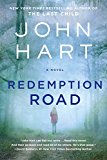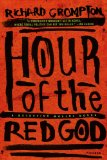Summary | Excerpt | Reviews | Beyond the book | Read-Alikes | Genres & Themes | Author Bio

A Novel
by Deon MeyerDeon Meyer's engrossing South African thriller pits Detective Benny Griessel against a mystery that unravels like the threads of a complex tapestry. Griessel and his team must work quickly to identify and locate a young woman on the run before she is murdered by her unknown pursuers. Meanwhile, he has been brought into a second murder case, and is struggling to act as a mentor to a handful of police officers who don't necessarily want his guidance.
As the title suggests, the action takes place within the short space of thirteen hours, broken into short sections. In each section, Meyer describes events that are occurring simultaneously, jumping rapidly between scenes. He handles the transitions deftly so they liven the narrative but still feel clear and natural. This structure allows the reader to keep pace with the investigators' gradual discovery of the truth. Although there is a third-person narrator, the narration is not omniscient, which keeps the reader grounded in something closer to "real time," and maintains the sense of urgency felt by the detectives.
Because the novel is set in contemporary South Africa, race relations and the legacy of apartheid are an inevitable topic, and Meyer works his social commentary into the story while still remaining true to his characters. Tensions do exist between the investigators, who represent different races and cultural backgrounds. Meyer makes it clear that, even sixteen years after apartheid, non-white South Africans are still marginalized. As a direct result of apartheid-era divisions, a distinction is still made between those who are black, those who are white, and those who are coloured (see sidebar for a full explanation), and Meyer realistically depicts the racial tension between all three groups.
Griesel tries to keep peace with everyone while working tirelessly on the two cases before him. But Griesel has his own demons, having been kicked out of his home by his wife as a result of his alcoholism (in Devil's Peak). Although he has been attending AA meetings and has stopped drinking, he is angered by the fact that he still has limited contact with his wife and children. Having to put all of this in the back of his mind in order to solve the case is a challenge for Griessel, especially when events during the investigation seem to conspire against him.
All of Meyer's characters are well-rounded and realistic, and each is compelling in his or her own way. But my favorite character is Kaleni, a Zulu who has had to work around not only racial and cultural barriers, but gender-based ones as well. After fighting hard for respect in her career, she has resorted to a style her colleagues perceive as loud and abrasive. Even though she is smart, and a highly skilled detective, she is disliked by almost everyone, and must work twice as hard to prove herself. She is frequently perplexed by people's attitudes toward her, and her hardened practicality leave her with little patience for others' judgments and cultural prejudices.
Many languages are spoken in South Africa, including Afrikaans, IsiZulu, English, and IsiXhosa, and the characters often switch between them. Luckily, a terrific glossary is included in the back of the book; do not make the mistake of overlooking it. The glossary explains the origin of most terms (especially slang), and provides some interesting tidbits of information about South Africa and her people.
Thirteen Hours draws to a satisfying conclusion, with answers that prove surprising. You'll be glad that you invested your thirteen (or so) hours with this book.
A note on the series:
This is the second of Meyer's novels featuring Inspector Griessel, but you do not need to have read the first novel (Devil's Peak) in order to enjoy this one.
Deon Meyer's latest novel, Trackers, just published in September 2011
Biography and bibliography of Deon Meyer.
![]() This review was originally published in The BookBrowse Review in October 2010, and has been updated for the
October 2011 edition.
Click here to go to this issue.
This review was originally published in The BookBrowse Review in October 2010, and has been updated for the
October 2011 edition.
Click here to go to this issue.

If you liked Thirteen Hours, try these:

by John Hart
Published 2017
Over 2 million copies of his books in print. The first and only author to win back-to-back Edgars for Best Novel. Every book a New York Times bestseller. After five years, John Hart is back.

by Richard Crompton
Published 2014
The Maasai believe in two gods. Enkai Narok, the Black God, is benign. Enkai Nanyokie, the Red God, is the god of anger, vengeance, and death.
Your guide toexceptional books
BookBrowse seeks out and recommends the best in contemporary fiction and nonfiction—books that not only engage and entertain but also deepen our understanding of ourselves and the world around us.